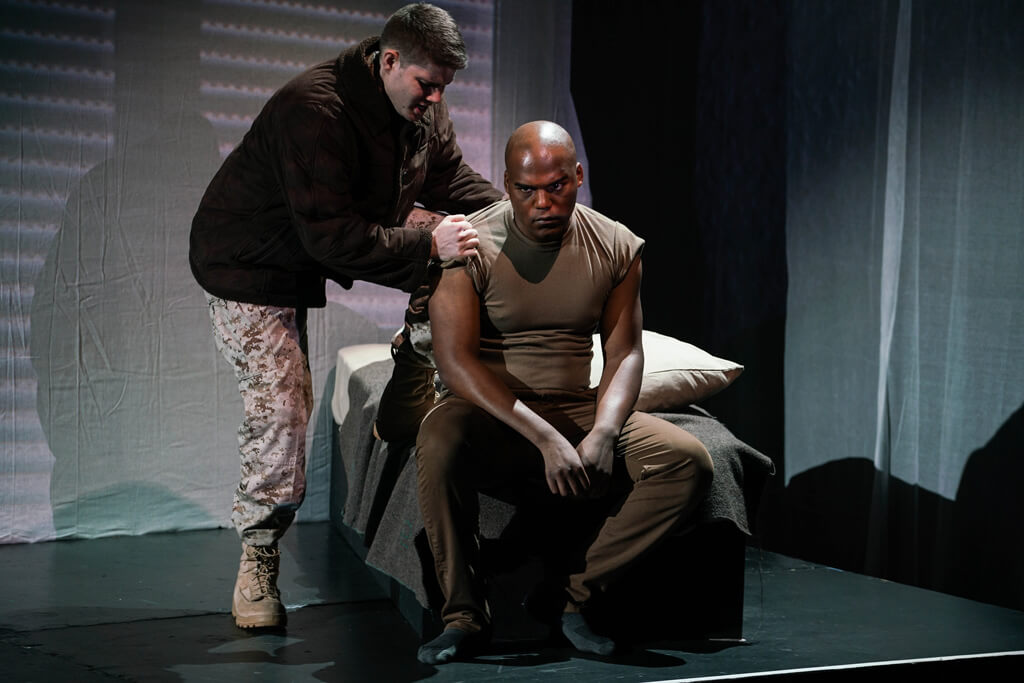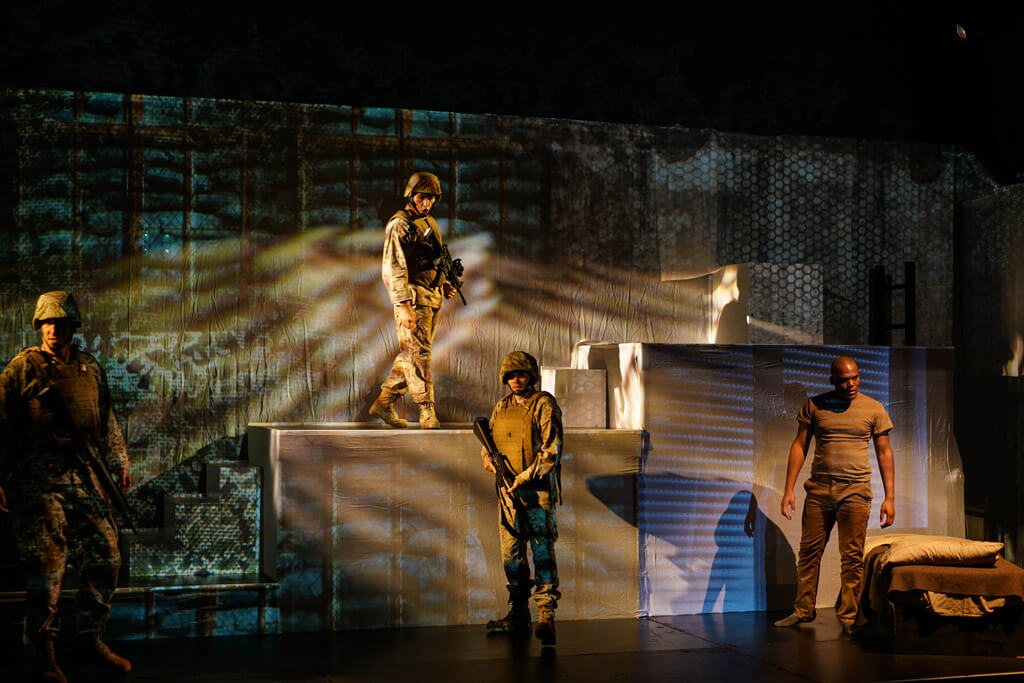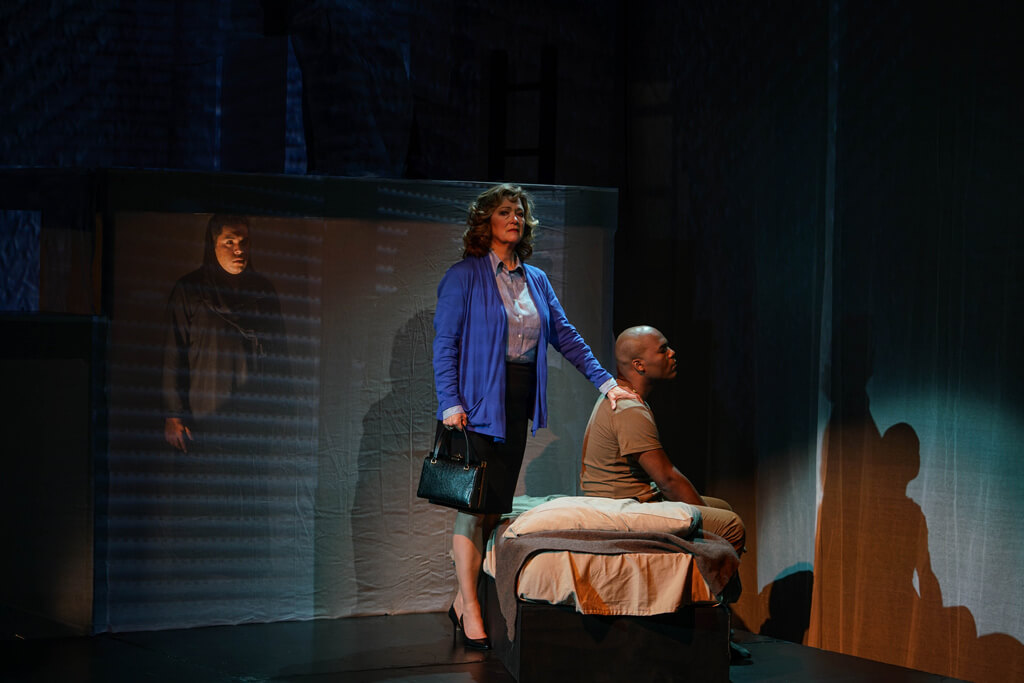
Fallujah: co-produced by New York City Opera-Long Beach Opera. Andreas Mitisek (director), Tobin Stokes (composer), Heather Raffo (libretto) at The Duke on 42nd Street, NYC.
NEY YORK CITY — War is usually told through stories of heroism and horror, but it’s also a grind, and the same can be said about opera. Tobin Stokes and Heather Raffo’s Fallujah is not a faux-filmic spectacle with blood packs and recorded explosions. It tells a story about the consequences of an ordinary act of war, about ordinary soldiers and ordinary residents of the city those soldiers were ordered to attack. It is an opera about the terror of numbness, and the fear that behind the numbness is something worse than pain.
Fallujah was originally commissioned by the Vancouver City Opera over five years ago, and it premiered as a New York City Opera-Long Beach Opera coproduction in March before running for four days in New York in November. That this is the lifespan of a contemporary opera on a subject as timely as a recent battle in Iraq may be a jolt for partisans of topicality.

Suffering from PTSD and on suicide watch, Corporal Philip is locked in a military hospital room where he’s visited by his mother and some ghosts. While she begs him to let her in the room, Philip (LaMarcus Miller) relives his killing of a woman, the mother of a boy he’d come to know — occupiers get the opportunity to recognize their victims in a way that assaulting forces do not.
The New York cast is the same that performed in Long Beach; they are comfortably intense and they are led by the remarkably expressive Miller, an opera singer who could easily be an actor. Philip is the most developed character, an orphan, but even he has a typological condition that’s shared by the indulgently stern squad leader, racist-but-goodhearted-and-soon-to-be-dead and assorted-interchangeable squaddies, purse-clutching adoptive mother, attached-to-her-home Iraqi, peaceful-until-destroyed-by-the-war boy, and candy shop-owner-turned-rebel sniper.

Listed like this they appear to be weaknesses, and perhaps they are, but whether it is intentional or accidental, Fallujah does not glamorize. There is not even the implicit heroism of the unique story told, only its tragic resonance. I suspect there are thousands of “Fallujahs” walking the streets of America (and Canada), soldiers who can’t undo the past or live in the present, and whose stories are not likely to match the scenic and firm arcs of war films.
Raffa keeps enough back that the opera holds you with suspense for eighty minutes and Stokes has written effective music for her unassuming text. The combination produces simple turns of unexpected power, like boots suddenly stomping up the stairs. There is a lovely trio of phone calls home, and a wrenching duo of mothers grieving for their sons. The nine-piece ensemble often disappears in double-time electric guitar and drum explosions; these announce every moment of action and grate from overuse, but once you accept the idea that numbness is the point, there’s very little that isn’t interesting.
#LUDWIGVAN
Want more updates on Toronto-centric classical music news and review before anyone else finds out? Follow us on Facebook or Twitter for all the latest.
- REPORT | Ukrainian Pianist Crowned Winner Of 2022 Honens Competition - October 29, 2022
- REPORT | The 10th Honens International Piano Competition: Finals I - October 28, 2022
- REPORT | The 10th Honens International Piano Competition: Semifinals IX-X - October 25, 2022



